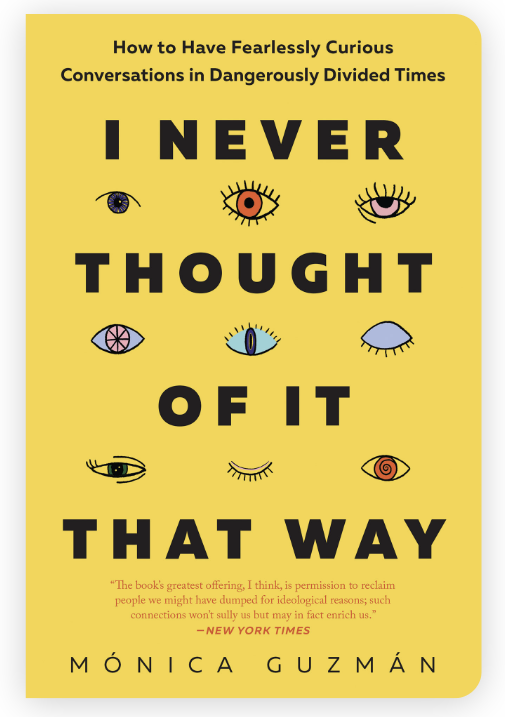Can Conversations Change the Way We See Someone? It Depends How You Have Them

We never would have thought a book about communication could spark a compelling shift in thinking about how we communicate with others. But thinking of things in a new way is the focus of Monica Guzman's book "I Never Thought of It That Way: How to Have Fearlessly Curious Conversations in Dangerously Divided Times."
True to its title, it made us say, "I never thought of it that way."
Monica is a bridge builder, journalist, and entrepreneur who is currently the Director of Digital and Storytelling for Braver Angels, the nation's largest cross-partisan grassroots organization working to depolarize America.
The book supports the premise that by truly understanding where others are coming from and sharing our own stories well, we can help overcome the confusion and madness in our conversations during these dangerously divided times.
Inside you’ll find practical, easy-to-understand tools and insights. However, unlike many communication books that are methodical, Monica is also a master storyteller who uses stories to reveal insights in a different perspective.
Below are some quotes from the book.
- “Bridging conversations are the kind that help us understand each other by letting us explore the spaces between our perspectives.”
- “What happens in the world matters, but our interpretation of what happens in the world matters more. That doesn't mean we should pay less attention to facts. This means that we should pay more attention to perspectives.”
- “See the issue you're discussing from the perspective of someone with a very different stake in it, and it's almost guaranteed to illuminate something you haven't considered.”
- “When you're surrounded by people who reflect the same basic set of perspectives, you'll find it harder to grasp any others. Not because you're incapable of grasping them. But because you're less likely to be given the chance.”
We hope these spark an insight, but we admit that when ideas are presented out of their story context they are harder to internalize and grasp.
That's what happens to us when we see headlines or have conversations that focus only on talking points. Without people’s story and their context, it's more challenging to create accurate understanding.
We leave with you these questions for reflection from Monica's discussion guide:
What do you think are your biggest barriers to being more curious?
What’s one thing you can do this week to be more curious?

